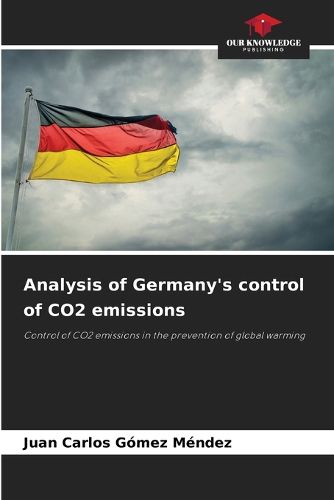Readings Newsletter
Become a Readings Member to make your shopping experience even easier.
Sign in or sign up for free!
You’re not far away from qualifying for FREE standard shipping within Australia
You’ve qualified for FREE standard shipping within Australia
The cart is loading…






Germany still faces challenges in meeting its targets and significantly reducing its CO2 emissions. One of the main problems facing Germany in terms of CO2 emissions is its dependence on fossil fuels; in total it has a dependence of 88.4%. This research performed a characterization of the variables CO2 emissions and vehicles in use, a normality test was applied to the data using the Shapiro Wilk analysis, a Pearson correlation test that resulted in a correlation of r=-0.725, which means that there is an intermediate correlation between the two variables. Since the r value is negative, it indicates an inverse relationship between the variables. A future projection was made using the least squares model, year by year, from 2024 to 2030, with the result that in 2024 CO2 emissions will be 668.2 Mt and these emissions will decrease until 2030 to 607.0 Mt, which continues to put at risk the world environmental goals of reducing CO2 emissions and maintaining the global temperature of the planet at less than 1.5 degreesC.
$9.00 standard shipping within Australia
FREE standard shipping within Australia for orders over $100.00
Express & International shipping calculated at checkout
Germany still faces challenges in meeting its targets and significantly reducing its CO2 emissions. One of the main problems facing Germany in terms of CO2 emissions is its dependence on fossil fuels; in total it has a dependence of 88.4%. This research performed a characterization of the variables CO2 emissions and vehicles in use, a normality test was applied to the data using the Shapiro Wilk analysis, a Pearson correlation test that resulted in a correlation of r=-0.725, which means that there is an intermediate correlation between the two variables. Since the r value is negative, it indicates an inverse relationship between the variables. A future projection was made using the least squares model, year by year, from 2024 to 2030, with the result that in 2024 CO2 emissions will be 668.2 Mt and these emissions will decrease until 2030 to 607.0 Mt, which continues to put at risk the world environmental goals of reducing CO2 emissions and maintaining the global temperature of the planet at less than 1.5 degreesC.